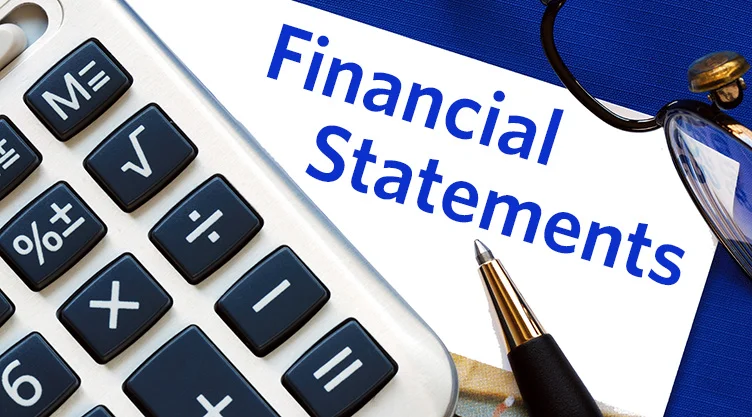Applying for a grant is a strategic endeavor that requires careful planning, attention to detail, and a deep understanding of the funding landscape. Grants offer a valuable opportunity to secure financial support for your projects or initiatives, whether you’re an individual, a nonprofit organization, or a business. However, the process can be highly competitive, demanding, and time-consuming. To maximize your chances of success and make the most of this funding avenue, it’s crucial to approach grant enrollment with a well-prepared strategy. In this article, we will provide eight essential tips to consider before enrolling yourself for a grant. These tips will help you navigate the complexities of the application process, create compelling proposals, and increase your chances of securing the funding needed to bring your ideas to life.
Research Grant Opportunities
Researching grant opportunities is a crucial preliminary step before enrolling in the grant application process. To maximize your chances of success, dedicate time to thoroughly investigate potential grants that align with your project or organization’s objectives. Identify relevant opportunities by utilizing online databases, grant search engines and grant directories. Pay close attention to eligibility criteria, deadlines, funding priorities, and application requirements for each grant. Additionally, consider contacting grant-making organizations, attending grant-related workshops or webinars, and networking with individuals in your field to gain insights and gather information about potential grants. This diligent research not only helps you identify suitable funding sources but also ensures that your grant applications are tailored to each grantor’s specific expectations and goals, increasing your likelihood of securing funding for your endeavors.
Understand Eligibility Criteria
Understanding the eligibility criteria is a paramount step when considering grant enrollment. Before investing time and effort into the grants application process, carefully examine the requirements set forth by the grantor. These criteria typically encompass various aspects, such as the type of projects or organizations the grant supports, geographic restrictions, budget limits, and specific deadlines. By thoroughly grasping these prerequisites, you can ensure that your project or organization aligns with the grant’s focus, increasing your chances of a successful application. Furthermore, adhering to eligibility criteria demonstrates your commitment to following the grantor’s guidelines, which can foster trust and credibility in the eyes of the reviewing committee. A clear understanding of eligibility criteria is foundational for selecting the most suitable grants and optimizing your grant-seeking efforts.
Develop a Clear Project Proposal
Developing a clear and compelling project proposal is paramount when applying for a grant. A well-crafted proposal serves as the roadmap for your project, offering grantors a comprehensive understanding of your goals, strategies, and expected outcomes. It should begin with a concise and engaging executive summary, followed by a detailed description of your project’s objectives, methods, and the problem it aims to address. Clearly articulate how your project aligns with the grantor’s mission and priorities, showcasing the relevance and impact of your work. To bolster your proposal, provide supporting evidence, such as data, research, or success stories, that substantiates your project’s feasibility and potential success. By presenting a meticulously thought-out project proposal, you enhance your chances of securing the grant, demonstrating your commitment to executing a meaningful and well-structured initiative.
Build Relationships
Building relationships is a pivotal step before enrolling in a grant application process. Connecting with grantors, program officers, and relevant stakeholders can significantly enhance your chances of success. Attend networking events, workshops, and informational sessions to engage with potential funders and gain insights into their priorities and expectations. Cultivating these relationships allows you better to understand the nuances of the grant application process and tailor your proposals accordingly. Moreover, when you establish rapport with program officers, they can provide valuable guidance, answer your questions, and even advocate for your proposal within their organization. These relationships facilitate smoother communication and demonstrate your commitment and dedication to the grantor’s mission, which can be a distinguishing factor in a competitive grant landscape.
Budget Wisely
A meticulously crafted budget serves as the financial roadmap for your project, demonstrating your ability to manage funds responsibly. Ensure your budget covers all project-related expenses, from personnel and equipment to supplies and overhead costs. Balancing realism and ambition is essential, as more than optimistic budgets can undermine your credibility. Moreover, align your budget with the grant’s specific guidelines, clearly showing how the funds will be allocated and managed. Grantors want assurance that their investment will be used efficiently. Hence, a well-thought-out budget enhances your chances of securing funding and sets the stage for successful project implementation and accountability.
Review and Edit Your Application
Reviewing and editing your grant application is a critical step that cannot be overstated. Once you’ve meticulously crafted your proposal, take the time to scrutinize it with a fine-tooth comb. Carefully proofread for spelling, grammar, and formatting errors; even minor mistakes can create a negative impression. Ensure that your narrative is clear, concise, and logically structured, making it easy for reviewers to understand your project’s objectives and impact. Seek feedback from colleagues, mentors, or grant-writing professionals to gain valuable insights and suggestions for improvement. Remember that a polished and error-free application demonstrates your attention to detail and, enhances your credibility, and increases the likelihood of your proposal making a favorable impression on grant reviewers, ultimately improving your chances of securing the funding you seek.
Address Evaluation and Impact
Grantors want to see a clear plan for assessing the effectiveness and sustainability of your project or initiative. In this section of your application, articulate measurable goals and objectives and explain the methods you will employ to track progress and outcomes. Clearly defined metrics and benchmarks demonstrate your commitment to accountability and transparency. Additionally, emphasize your project’s long-term impact on the community or target audience. Grantors are interested in funding initiatives that create lasting, positive change. By addressing evaluation and impact comprehensively, you increase your chances of securing the grant and demonstrate your dedication to making a meaningful difference with the funding received.
- Submit a Complete Application
Before enrolling for a grant, it’s crucial to emphasize the importance of submitting a complete application. A complete application demonstrates your professionalism and maximizes your chances of success. Ensure you meticulously follow all the grant guidelines and provide all necessary documents, attachments, and supporting materials. Missing even a single requirement can result in your application being rejected, regardless of the merit of your project or proposal. Double-check every detail, review the application checklist, and adhere to deadlines. A complete and well-organized submission showcases your commitment. It ensures that the grantor can fully understand and evaluate your project, increasing the likelihood of securing the funding you need for your endeavors.
Conclusion:
Securing a grant can be a game-changer for your projects and aspirations but requires careful planning and execution. By thoroughly researching grant opportunities, crafting compelling proposals, and adhering to application guidelines, you can position yourself for success. Remember that persistence and continuous improvement are essential to grant acquisition. Stay committed to your goals, seek feedback, and learn from successes and setbacks.





